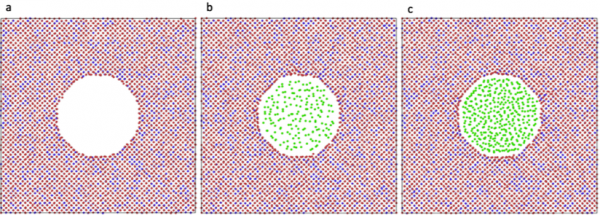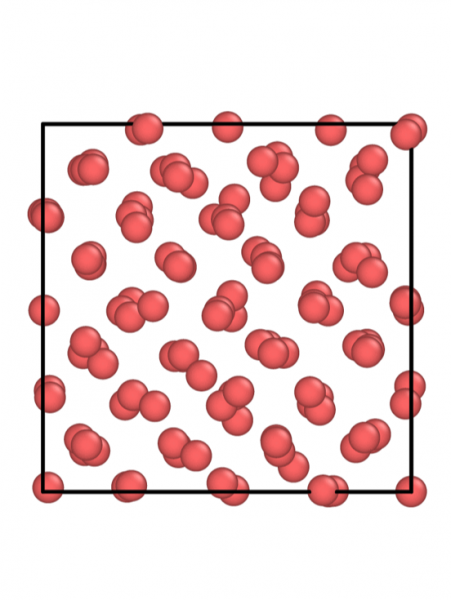
Home
The group’s primary research interests are atomistic description and evolution of nuclear fuel and structural materials.
One of the foremost challenges in the nuclear industry is the development and qualification of materials capable of use in advanced nuclear systems. This group proposes to tackle challenges such as thermophysical property collection and analysis, grain boundary structure and properties, effects of irradiation on diffusion and defect generation, physics-based fuel performance modeling, etc. via atomistic methods.
Atomistic Modeler’s Toolkit
- Density Functional Theory (DFT)
DFT is a computational quantum mechanical modelling method used to investigate the electronic structure of many-body systems, in particular atoms,  molecules, and the condensed phases. DFT is often employed to calculate equilbrium structure, lattice constants, elastic constants, defect formation energies, phase diagrams, electron and phonon densities of states, etc.
molecules, and the condensed phases. DFT is often employed to calculate equilbrium structure, lattice constants, elastic constants, defect formation energies, phase diagrams, electron and phonon densities of states, etc.
- Molecular Dynamics (MD)
MD is a computer simulation method for analyzing the physical movements of atoms and molecules, determined by numerically solving Newton’s equations of motion for a system of interacting particles. MD can span longer time scales and larger length scales, up to millions of atoms and nanoseconds. These simulations require interatomic potentials capable of accurately predicting a number of properties. 
- ab initio Molecular Dynamics (AIMD)
AIMD is a computer simulation method in which finite temperature molecular dynamics (MD) trajectories are generated with forces obtained from accurate ‘on the fly’ electronic structure calculations. This provides a  hybrid mixing between the accuracy of electronic structure calculations, while allowing for real temperature effects to be considered.
hybrid mixing between the accuracy of electronic structure calculations, while allowing for real temperature effects to be considered.